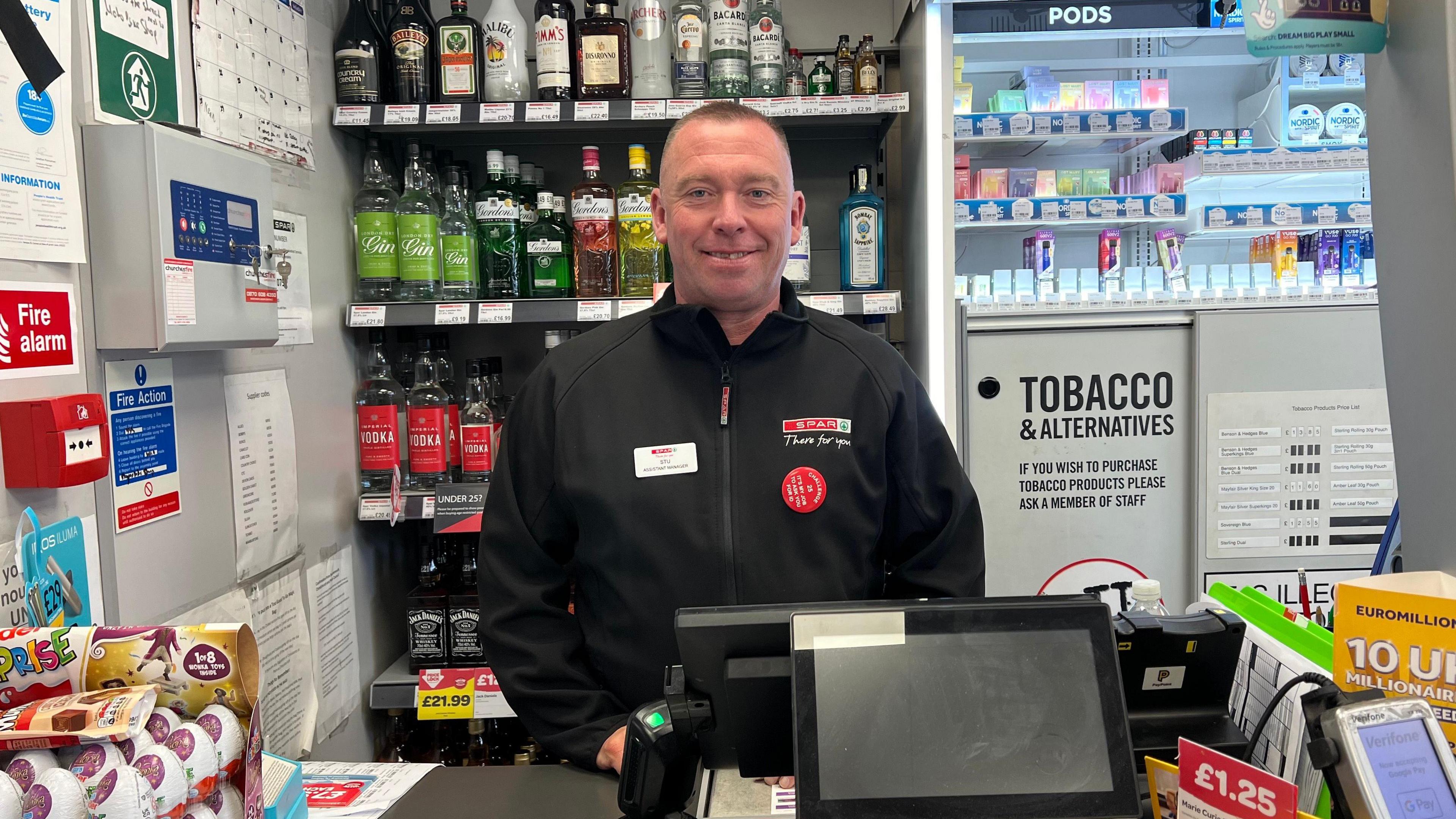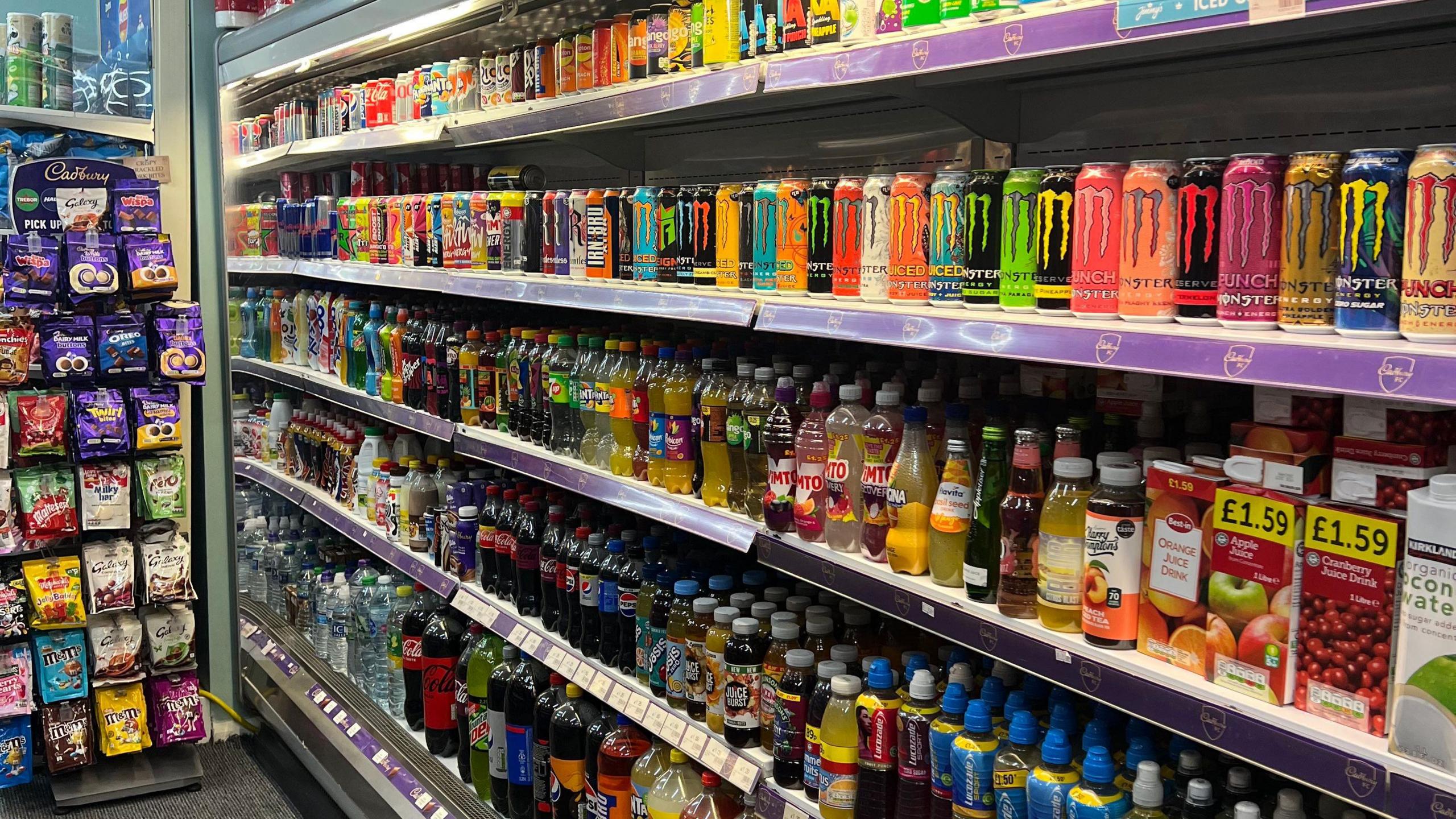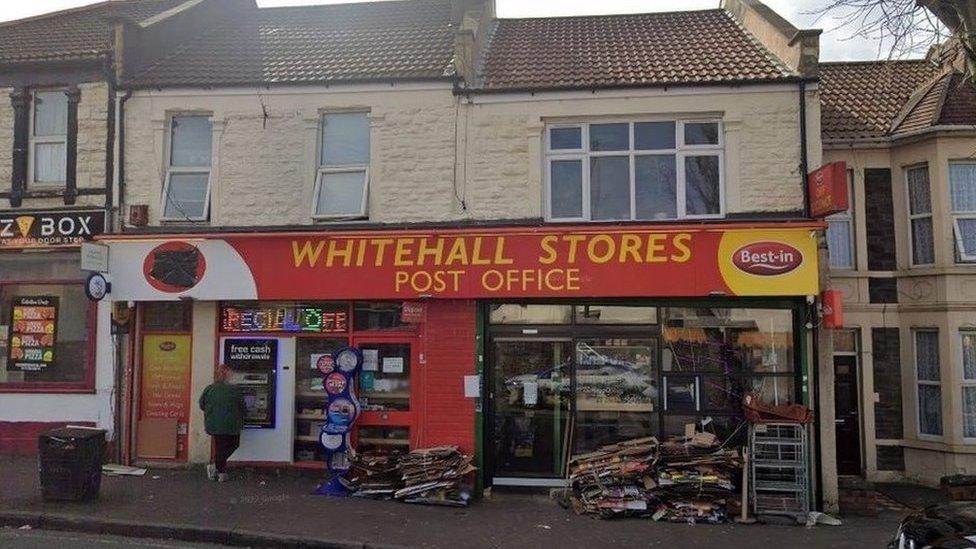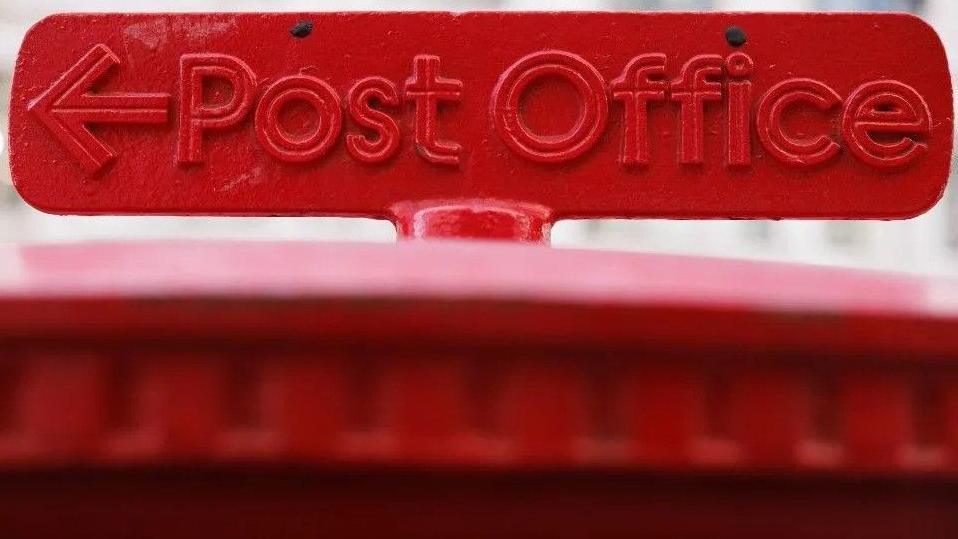Why corner shops have stayed essential to communities

One-in-three customers feel they know the people working in convenience stores well, according to the Association of Convenience Stores
- Published
Corner shops are a familiar place to everyone. Where we go to pick up our favourite bag of crisps, that drink we cannot find anywhere else, while having a lovely chat with the people in store.
Stuart Lewis, the manager of a corner shop in Bournemouth, said: "We're here to help, we're here to support the community, we're here to be there for the community."
There are almost 50,000 convenience stores in the UK, a figure that has grown since 2018, according to a report on local shops from the Association of Convenience Stores (ACS).
James Lowman, chief executive of the ACS, explained that corner shops "offer something really quite powerful in the community".

Tiana, a customer in Bournemouth appreciated that corner shops are "open at times when other shops aren't"
Mr Lewis, known locally as Stu, has worked in the retail industry for more than 30 years and recently moved from the supermarket sector to the convenience sector.
The corner shop he manages has been part of the neighbourhood for more than 40 years, despite changing owners multiple times.
Mr Lewis emphasised how his relationships with customers differ in the corner shop in comparison to working in a supermarket.
He said: "Our regular customers always come in and say hi.
"That two-minute chat can make a big difference to their lives."
He felt that catering for customers on a local level played a big role in the shop's success.
"Some people come in and say 'Oh, is there any chance you can get this in for me?'."
Mr Lewis' answers: "Yes.
"We do everything we can. We're here to help. We're here to support the community.
"We're here to be there for the community."
'Customer loyalty'
The most recent report by the ACS on local shops said that the sector is expected to be worth £50.9bn by 2026.
Mr Lowman said: "I think what the future of our sector is going to be offering a bit of everything.
"A lot of our members offer delivery, they might offer a post office, they might offer a cash machine and obviously that broad range of products as well.
"Offering a range keeps us relevant."
He felt that the pandemic contributed to boosting the importance of local shops: "Local shops became incredibly important to the community at that time because people wanted and needed to shop locally.
"They needed to access food and when they did so, they found that these stores were offering something really quite powerful in the community."
Bournemouth shoppers share their reasons for visiting their local convenience store.
Customer loyalty is also essential to the success of convenience stores.
Jushane, a shopper from Bournemouth, felt that it was "easier to build a connection" with corner shop staff as he was regularly served by the same person.
"We do rely a lot on customer loyalty and we do rely on a lot on people living close by and keeping us going", Mr Lewis explained, with most of his customers regularly walking to the shop as they feel familiar with it.
He continued: "When people come we're lucky; lucky that they stay coming to us."
Follow BBC South on Facebook, external, X, external, or Instagram, external. Send your story ideas to south.newsonline@bbc.co.uk, external.
Related topics
More from the BBC
- Published19 January 2024

- Published30 May 2024

- Published8 June 2021
